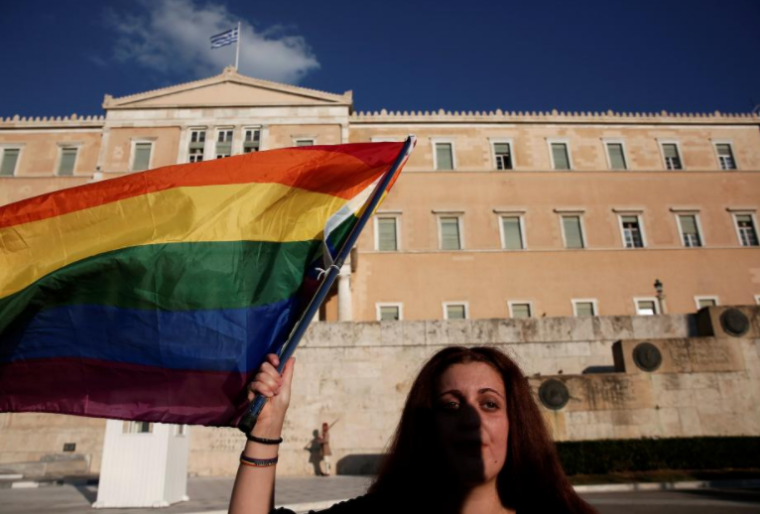'Gender is sacred': Greek Orthodox Church in fury over new sex change law
The Greek Orthodox Church is in uproar over a new law passed by the country's parliament yesterday that will increase the ease with which individuals can change their legally recognised gender.

The law, regarded as overdue by human rights campaigners, will allow people to change their gender on official documents with a court ruling, and without requiring medical tests or sterilisation, as is the case now.
It has been condemned as 'immoral' by the Greek Orthodox Church and as a 'monstrosity' by right-wing politicians.
Until now, anyone needing to officially change their gender had to be diagnosed with a 'gender identity disorder' and have their reproductive organs removed, a practice condemned by human rights campaigners.
'Absolutely no tradition, no perception of family calls for people to be side-lined or tossed aside into a social and institutional abyss,' Prime Minister Alexis Tsipras, who supported the law, told a heated discussion in parliament.
The law applies to anyone over the age of 15 and allows a person to change legal gender twice. Applicants must not be married and a final decision will be taken by a court.
The main opposition conservative New Democracy party voted against the bill saying it was a 'sloppy' attempt to divert public attention from Greece's financial woes.
'Your only goal is to stay in power,' said conservative lawmaker Simos Kedikoglou. 'You've found various methods of deception and this bill is the latest proof.'
Supporters rallied outside parliament during Monday's debate, holding a banner reading: 'Transgender rights are human rights.'
The Church had urged the government to withdraw the bill.
'For every human, gender is a sacred legacy. It is a precious thing for a woman to know about her feminine nature, and for a man to be aware of his male nature,' Bishop Nicolaos of Mesogaia told Greek Skai TV.
The Church, he said, embraced 'people with difficulties.'
The bill passed by 171 votes in the 300-seat parliament, but it exposed fissures in the ruling coalition of Syriza and right-wing Independent Greeks party.
Most Independent Greeks approved the bill in principle but voted against an article setting the minimum age at 15, arguing that was too young.
Additional reporting by Reuters.











